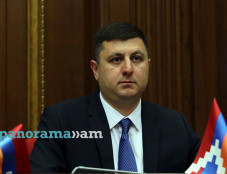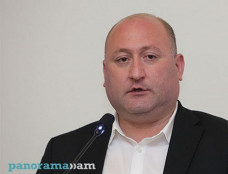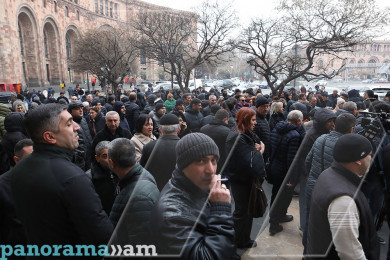
CoE report: Inter-prisoner violence, informal prisoner hierarchy, luxurious conditions for some inmates in Armenia
The Council of Europe’s Committee for the Prevention of Torture (CPT) issued on Wednesday a new report on Armenian places of detention, summing up data based on its periodic visit to the country in December 2019.
The report published on the official website of the organization, welcomed some positive developments in the penitentiary system, however, it noted with grave concern that some of its long-standing recommendations concerning the legal safeguards for persons in police custody, the material conditions, regime and health care in prisons, as well as staffing levels and legal safeguards in psychiatric establishments, remain to be implemented.
The report covers the situation in the police establishments visited (Detention Centre of Yerevan City Police Department, as well as Kotayq, Armavir, Artashat, Goris, Hrazdan, Kapan, Sevan and Nairi Police Divisions), penitentiary establishments (Armavir Prison, Central Prison Hospital, Goris Prison, Hrazdan Prison, Nubarashen Prison, Sevan Prison and Yerevan-Kentron Prison), psychiatric establishments (Armash Health Centre, Forensic Psychiatric Unit of the National Centre for Mental Health Care and Syunik Psychiatric-Neurological Dispensary), as well as Dzorak Social Care Centre for Persons with Psychiatric Disorders.
As for police establishments, practically no complaints of ill-treatment in police custody were received. However, the practice of “informal talks” (i.e. persons being “invited” to come to the police, prior to being officially declared a suspect and prior to drawing up the protocol of detention, and frequently de facto held in what would appear to be unrecorded custody, for periods of hours and even days), criticised by the CPT many times in the past, has not been fully eliminated, especially outside Yerevan. The Committee once again calls upon the Armenian authorities to stop this practice.
The situation with respect to the legal safeguards against ill-treatment (in particular, notification of custody, access to a lawyer, and information on the aforementioned rights) has remained unchanged since the 2015: these safeguards were operating satisfactorily in practice, but only as from the moment when the police custody was formalised and duly recorded.
As far as prisons are concerned, none of the prisons visited in 2019 was overcrowded, which is a very positive and welcome development. The Committee equally welcomes the plans of the Armenian authorities to close down, by the end of 2022, several old prisons that it visited (Goris, Hrazdan, Nubarashen, Yerevan-Kentron, as well as the Central Prison Hospital) where material conditions vary from very poor to just about acceptable and to replace them with new prisons or units.
"While no credible allegations of physical ill-treatment by staff were received, inter-prisoner violence, intimidation and extortion remained a problem in most of the establishments and it was clearly related to the persistent influence of the informal prisoner hierarchy. The phenomenon was demonstrated by the continued existence of strikingly better, bordering on the “luxurious” prisoner accommodation and the presence of large amounts of prohibited items (including mobile phone and drugs) inside prisons, related with trafficking and extortion organised and controlled by criminal “bosses”." the report said.
In all the prisons visited, the delegation again received complaints about access to specialised health care, and as in 2015, inmates were expected to pay for necessary prescribed medication from their own pocket, or have these medicines sent to them by their relatives. The CPT has called upon the Armenian authorities to ensure that all prisons are supplied with appropriate medication, free of charge for the inmates. Urgent measures should also be taken to prevent further loss of prison healthcare staff by rendering the work more attractive.
It is noted that the delegation was very concerned to observe that, as in 2016, none of the prisons visited offered anything remotely resembling a regime of organised constructive out-of-cell activities; there was still no individual sentence planning and hardly any preparation for release, and the lack of work opportunities for inmates meant that most of them could not qualify for early release.
The CPT has encouraged the Armenian authorities to continue to pursue their efforts towards the development of community social care accommodation and day care, in liaison with the Ministry of Health and mental health care services, so as to shorten or avoid institutional stays and improve experiences and outcomes for service users, allowing their proper re-integration into the community.
Newsfeed
Videos






























